
Muse & Mastery
Hosted by Aliya Cheyanne, Muse & Mastery is a digital sanctuary for creative thinkers, makers, and seekers. Each episode explores how we can live, create, and evolve in alignment with our purpose.
Muse & Mastery
Solopreneur vs Entrepreneur: Which Path is Right For You? | Ep. 34
Reflecting on my own journey and vision for my business, I take a deep dive on where I stand on the solopreneur <> entrepreneur spectrum! In this episode, I also discuss the plight of Black-owned businesses from navigating tough spaces to the ability to scale to new heights.
Listen to the 96% clip of Ryan Wilson on The Social Proof podcast!
Watch this episode on YouTube!
Theme Music:
She No Dull Beat by Nana Kwabena
Festivities in Belize by RAGE Productions
Enjoy the episode?
- Share it with friends!
- Send a voice note or text!
- Rate & review the podcast!
Follow @museandmasterypod on your favorite SM platforms!
Watch full interviews here on YouTube!
Join me over on Substack!
Check out my favorite brands and snag a discount!
Grab a guided journal here!
Are you a creative, solopreneur or entrepreneur who’d like to be featured on Muse & Mastery? Let me know here!
Hosted by Buzzsprout. See the Buzzsprout - Privacy Policy here.
I saw something recently that basically said that if you are a creative, you are an entrepreneur, like. The two go hand in hand. It doesn't matter if you're, you know, working for a job and maybe you're doing your creative pursuits on the side, or if you're doing your creative pursuits full time by nature. The two go hand in hand. And that got me thinking about what this journey has looked like for me, what this journey has looked like for people that I know, whether I've interviewed them on the show or not. It is very true, to have an enterprising spirit is a unique spirit to have, and I think that there is so much value in many of the meaningful ways that people contribute to the world, whether you're doing something that's rewarding and fulfilling and that you love, that's, you know, helping to build the vision of someone else, or whether you're pursuing the path of creating your own vision in the world and manifesting that in the world, or even if you're just doing what you have to do to survive and make ends meet so that you can find some semblance of joy outside of that aspect of your life. I think that's really important, and I've been thinking about terminology and language a lot recently, especially jumping into this space of wanting to do my own thing, and it's been entrepreneurship, entrepreneurship, entrepreneurship. And I'm like girl there has to be another term to describe what you're doing and I'm realizing that I might not be an entrepreneur yet, I might just be a solopreneur and I had to actually look up the difference between the two. Like an entrepreneur has an established team. Like they have a team on payroll, like these people that they are responsible for, these people that work for whatever organization or entity or company or whatever you want to call it, who are helping to make that founder or that CEO or that leader's vision come true. Solopreneurship is a little bit different because most of the time, solopreneurs are people who are either doing everything in-house themselves literally everything or they're working with contractors or vendors to help with some aspects of their business, but essentially they are the ones doing everything. And it's been making me think a lot about just my position in this space.
Aliya Cheyanne:I definitely fall into the solopreneur category. I am doing everything and when I have the resources to do so, I can look to support, I can look to bringing on support, but that's not always the reality. A lot of it does fall on me and I am learning about how to navigate aspects of that with my personality, especially as someone who doesn't want to grind myself down to dust. I refuse to do that and I still believe that it's possible for me to show up in the world and do what I feel like I am meant to do and called to do through my business. But I've been thinking about that a lot and I've been thinking about my position in it.
Aliya Cheyanne:I know some people may be tired of hearing about race, but if you're tired of hearing about race, that means you might have the privilege not to think about it. So for the rest of us that don't have the privilege not to think about it, at the end of the day, my identity I am a Black woman navigating this world and I think about that a lot in business, especially when it comes to pursuing opportunities, landing opportunities, putting myself out there in certain spaces. I find myself either wanting to participate or participating in certain spaces, but having to do a check about whether or not certain spaces are safe enough and comfortable enough for me to. I don't want to use the word comfortable, because sometimes you have to push yourself outside of your comfort zone, but if I'm having to check and see what spaces might be safe for me to show up in, because are there going to be other people that look like me there, or am I walking into a space where I'm going to be ignored or diminished or not paid attention to for whatever factors or some people might be overly interested in because I'm coming in as a token? There's so many things that I have to think about in certain spaces, but one of the things I think about is what it looks like to be starting a business and growing a business as a Black woman. I heard a clip recently, so Miles Worthington is someone who I follow on LinkedIn and I don't know Miles personally, but I'm name dropping because I'm manifesting having him on the podcast someday.
Aliya Cheyanne:Miles founded his company Worthy, which is a marketing and communications firm that is led by a man of color, employs people of color, centers those experiences and provides that representation in a space that is not dominated by us, and Miles coined the term underestimated audiences when referring to marginalized groups that marketing firms and communications firms often don't consider or think about when they're creating all kinds of campaigns, from commercials to social media, which is insane because, as we've seen time and time again. Black culture, indigenous culture. These groups of people oftentimes are starting trends and leading trends that blow up and often alter the course of certain ways that groups advertise or certain ways that groups communicate. This is all started by Black and Indigenous cultures most of the time. So it's interesting that, despite being trendsetters, these groups are often ignored when you're at tables or you're in rooms deciding on how you're going to run your next campaign. And what I love about Miles's work is that he coined the term underestimated audiences. So instead of using terms like underrepresented or using terms like marginalized groups, using terms like marginalized groups, you're replacing that language with underestimated.
Aliya Cheyanne:Black people have billions of dollars of spending power. Despite the narratives and the stereotypes that exist, we have billions of dollars of spending power collectively that a lot of times brands products shows they're not being marketed to us because they're assuming that we either can't afford the thing or we're not interested in the thing or this wouldn't appeal to us. And Miles really coined that term to look at our groups differently because for so long we have been underestimated audiences. And how can you know what we're capable of and what we can do if you're never tapping into us? I say all that to say that because I follow Miles on LinkedIn. One day he shared a clip in a post and it was from the Social Proof podcast, and the person in the clip was talking about Black-owned businesses and what it looks like for us, and the statistic that was included in that clip states that 96% of Black-owned businesses don't have a single employee. It's all the owner doing everything or working with vendors and contractors, and in this season where I'm thinking about solopreneurship and entrepreneurship, I thought that was so fascinating. And it's not always because Black businesses don't want employees. A lot of times that has to do with their ability to grow and scale their business.
Aliya Cheyanne:I've heard countless people who have started and sold businesses and started new ones again talk about how difficult it is to raise capital and raise funding.
Aliya Cheyanne:We're seeing a multitude of attacks on diversity, equity and inclusion, not just from conversations in schools, but all the way up to venture capital. Funds that were created and are created to support marginalized groups have access to capital to fund and scale their businesses be under attack, and so many businesses would love to bring teams on, they literally may not be able to afford to do so. There are plenty that don't want to. They're perfectly content being a solopreneur, or they may just, you know, working with vendors or contractors may be enough for them. But there are a lot of businesses that, if they had the support and the backing, would completely value bringing a team on to help them as entrepreneurs. But because of so many barriers in place, it's often difficult to navigate that and do what you need to do to seek that sort of support and funding when you're just trying not to drown under the weight of the workload that you have. I actually want to try to play that clip. I'm hoping that the volume will be loud enough, so let's try to play that now. Actually.
Ryan Wilson:This is a very critical year in a lot of ways and we've got to stop talking about starting businesses and really focused on scaling them. Scale conversations are different than start conversations. We should do the business plan but like, if you're going to start, we got to get you to real. Real scale, like fast. 96% of our businesses don't employ anybody. 96% of our companies don't have a single member of the team. Think about the potential, right, right. So the the result of that that's incredible is that if you graduate from college and you're black, statistically speaking, the likelihood that you will ever work at a black-owned business is statistically insignificant. Wow, 96 of our companies don't employ anybody. So when we're having these conversations about closing the wage gap and the overall income inequality gap, unfortunately there aren't enough of our businesses that are employing people to help to disrupt that. We're almost entirely dependent on everyone else to give us an opportunity.
Aliya Cheyanne:Man, that's good.
Ryan Wilson:I like I don't. That cannot be the reality. Like last thing I'll say on this what's amazing about PWIs and having a PWI circuit and an HBCU circuit is that it gives us options. When you're graduating from high school, you decide graduate. What is the equivalent landscape that exists out there? It doesn't exist. So you can graduate from an HBCU but you're probably going to work at a PWI no matter what happens. So we've got to disrupt that right, and there are ways to do it. We've got to get our businesses to scale so that when people are graduating they can say you know what? Do I want to work at that PWI, which may be a good opportunity, or do I want to go work at this HBCU? I like that.
Ryan Wilson:I believe when options occur, the PWIs are going to start looking over and being like well, we got competition in the marketplace. We've got to make this a good place for black folks to work. We've got to have some With no actual alternative in the marketplace. We just have DEI talks ad nauseum, like we just have book reports over and over and over again. But if you legitimately knew that, your vice president could leave not to go to another PWI but to go to an HBCU that is competing against you and directly targeting not just customers in their community but everybody else. Now we're in a whole different world. So that's why scale is important, right, because you're having different conversations. You're starting to recruit talent.
Ryan Wilson:I remember when we hired the first person that worked at a Fortune 500 company to come to us. I'm like what's up? Yes, I'm taking talent out the Fortune 5. Yeah, and not for the discount that optionality starts making people have to. I like that. 2024 is the year of scale for everybody. Yes, us, but everybody. We have to stay focused there so that when our kids walk across the stage, it's more than 4% of companies that they have a shot to go work at. Those 4% can't hire everybody, so we need the 96% to grow so that we have a lot of small and medium-sized businesses that folks have a shot at. This is a very critical year.
Aliya Cheyanne:I am going to link what I'm referring to in the show notes in case you want to listen to that back and watch it for yourself. But I love that language about this being the year of scale. It is difficult to, depending on the nature of your business, be the sole operator. So many Black-owned businesses need support and so many are not able to get that support as quickly as they need to. So in a lot of cases the business might go under or the business might not be as quote unquote successful as it could actually be had it had the support that it needed to do that. So I am thinking about a lot of things and I'm thinking about what this looks like for me, like my vision for myself with my communications business and also running this show like a business. I'm thinking about scale. I think in their current forms, as I've mentioned before on the show, they're not always sustainable for me to just do on my own. Burnout is real. So I'm doing some evaluating about what this looks like for me, how I want to show up in certain spaces, what that looks like in terms of taking on new clients for my communications consulting business, what that looks like for scaling and moving this show forward to the best of my ability while I feel called to do it. Just a lot of thinking, and a lot of thinking about just the language from that clip, about presenting more opportunities for us to have the businesses for others to work at and support. I know what it feels like. I didn't go to an HBCU, I don't know what that feels like, but I know what it feels like to be very firm in my identity and to work in PWI, predominantly white institutions, where I don't feel connected or apart or seen because those environments aren't created for or by people who are different to really thrive in. And it has me thinking a lot about what sort of opportunities I want to create in the world, but also many of the Black-owned businesses that we care about or see or support what it looks like for them to scale. So, just a lot of thinking in this season. So, yeah, if you are someone who identifies as a creative or a solopreneur or an entrepreneur, I invite you to think about what that means and looks like for you. If you are a Black-owned business or a woman-owned business, you know minority I hate that word kind of. I had a sidebar. I had a professor in undergrad. He taught a black studies course and he also hated the word minority and he made me think about it and all his students think about it in terms of you know, what does the actual global majority look like? Because the global majority is brown and black, but you know, for the purpose of categorization, minority owned business yeah, I invite you to think about what that looks like for you. If you are running a business that has scaled, I would love for you to share more about that with me by sending a text into the show or a voice note. If you are a Black or unquote, minority-owned business or women-owned business or a non-binary-owned business however, we talk about these marginalized terms if you identify as someone who fits any of those categories and you have a business but you're struggling to scale it and maybe you view yourself as a solopreneur for now, but you're hoping to become someone who is an entrepreneur and have a team At some point, I'd also love to hear from you as well in a text message or a voice note.
Aliya Cheyanne:I've been thinking, too. I just we did an episode at the beginning of this season about what someone's dream life looks like. My dream life is full of ease. It's full of slowness. It allows me to be intentional and present. It allows me to work on the things that I feel strongly about and that I feel passionate about. My dream life doesn't necessarily involve hard labor Like I don't want to do that, like I don't know where this desire for ease comes from. I don't know if it's just like surviving this system and this world right now. Or I don't know if it's like maybe ancestors I've had in my lineage who did not have the opportunity to rest, who are just adamant about me healing that for them. I don't know where it comes from, but I don't want to grind myself down to dust. I really don't.
Aliya Cheyanne:And when I think about solopreneurship versus entrepreneurship, I actually think, at least in this season of my life. I don't know how I'll feel down the line, but I actually feel pretty strongly right now about solopreneurship, but not to the extent that I continue to do everything by myself. I am pursuing grant funding for different things so that I can bring on support to help me with my business, and that means working with contractors or vendors to alleviate some of my time and my energy, when I'll be able to work with someone on a contract basis to help me with certain aspects of my business. I don't know that I want to be responsible for the livelihood of someone else to the extent of being an actual employer. I don't know if that's for me, I don't know. I don't know, maybe it is, but right now the thought of that is one that I'm grappling with and thinking about and that's interesting as someone who has also thought about having a physical space for a business that would require that kind of support. I don't know that that's for me. I feel very comfortable right now in my season of solopreneurship, but to the extent that I would love to bring more resources in to work with the contractors and vendors that I need, and I think a lot about what I want my life to look like and feel like, more than look like what I want my life to feel like, and I don able to do my business from anywhere to the point where maybe I'm staying somewhere else in another location, and it could be for a vacation, but it could also just be because I'm working and I want a new environment. I don't want to be stationary, I don't want to be in one location. I want the flexibility and the freedom and the privilege of being able to move around. So I'm personally doing a lot of thinking around what this looks like for me, what this looks like for me now and what I want it to look like for me in the future and, more importantly than that, what I want it to feel like, what I want my life to feel like.
Aliya Cheyanne:I try my best to practice being present when and where I can. So when I'm stealing moments of just deep pleasure and joy and gratitude and satisfaction for a moment in time and it could be the simplest thing. It could be being outside with my dog, it could be on a walk, it could be sitting on the porch with my grandmother and enjoying the nice weather, even if I have my laptop on my lap and I'm working at the same time, I'm still grateful for those kinds of moments and I try, when I'm in that moment of gratitude or pleasure or ease and flexibility, I try to really ground myself in it and be extremely present for that moment, instead of just moving through it and not really allowing that feeling to settle into my body. And I think what solopreneurship or potentially entrepreneurship looks like for me and feels like for me is, in the long term not saying that there will never be stressors, because there will always be stressors and factors outside of my control, but in the long term it feels simple, it feels easeful, it feels like I have control over my time and my day and how I move through the world and how I show up in spaces. So, once again, a ramble, but something that I'm pondering and thinking about in this season and I invite you to think about. If you've already thought about it and you're doing it, like I said, text a show or send a voice note, I would love to hear from you and know what you think about that.
Aliya Cheyanne:So we've talked about the solopreneur and the entrepreneur, but have you ever heard of the maturepreneur? Well, next week we're going to be speaking with Jeanette Anderson, and Jeanette is going to be sharing more about maturepreneurs and maturepreneurship and what it takes to thrive in the entrepreneurial space at 55 and above. But she also shares a lot of wisdom and a lot of incredible advice for people of all ages, whether you're just getting started or whether you're a seasoned entrepreneur. If you have a friend or a family member, whether that be a parent, an aunt, an uncle, an older cousin, anyone of any age who might be interested in entrepreneurship but not sure if it's something they can pursue at an older age. This is definitely the episode you want to share with them, but I also recommend that you tune in, because there is so much incredible advice and guidance around entrepreneurship and what untapped markets we're seeing at this time, and I really enjoyed my conversation with Jeanette, so be sure to tune in next week. Thank you so much for listening today and I will catch you back here next week.
Podcasts we love
Check out these other fine podcasts recommended by us, not an algorithm.

ShxtsNGigs
shxtsngigs
LOVERS by shan
LOVERS by shan
Can't Afford Therapy
Can't Afford Therapy Podcast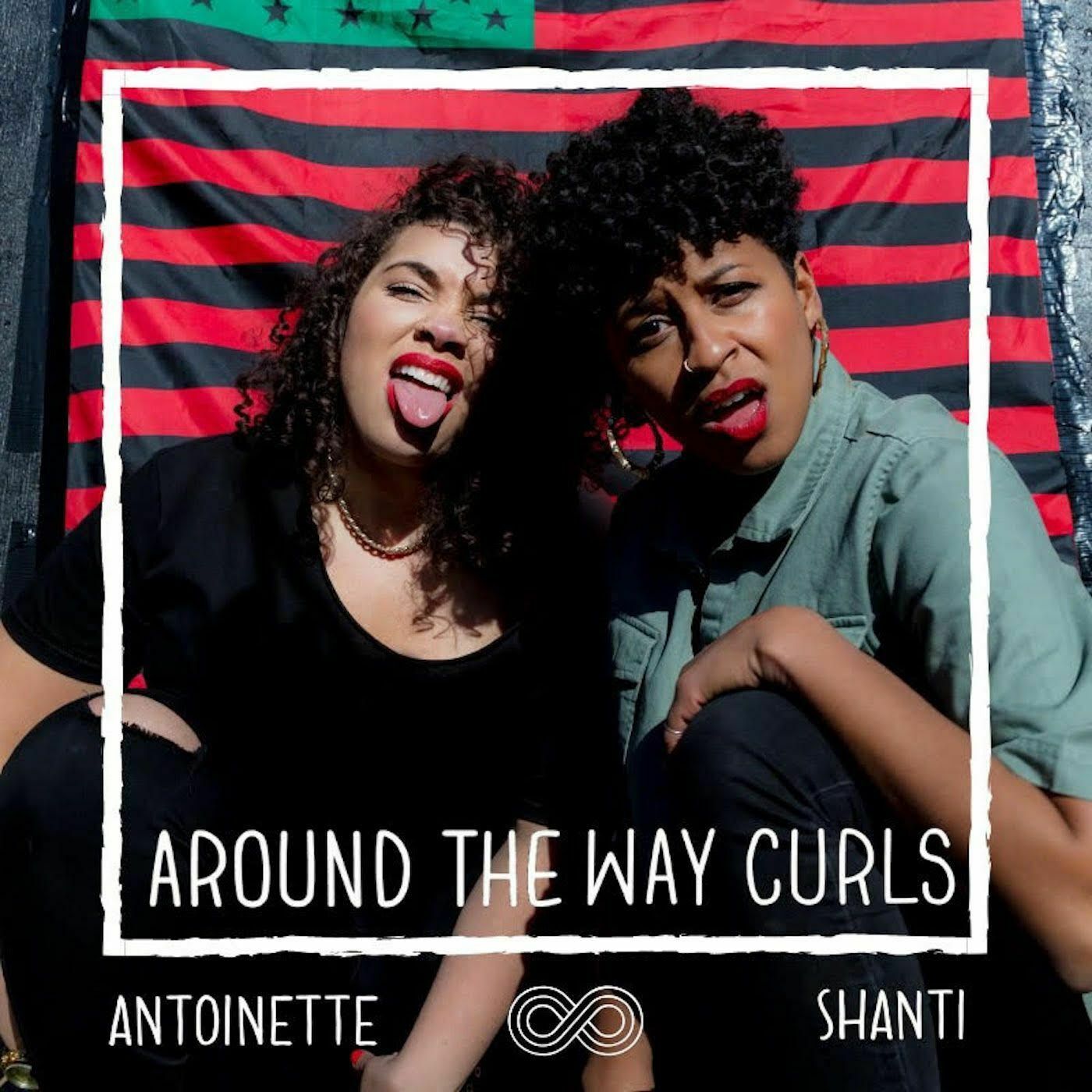
Around The Way Curls
Antoinette Lee & Shanti Mayers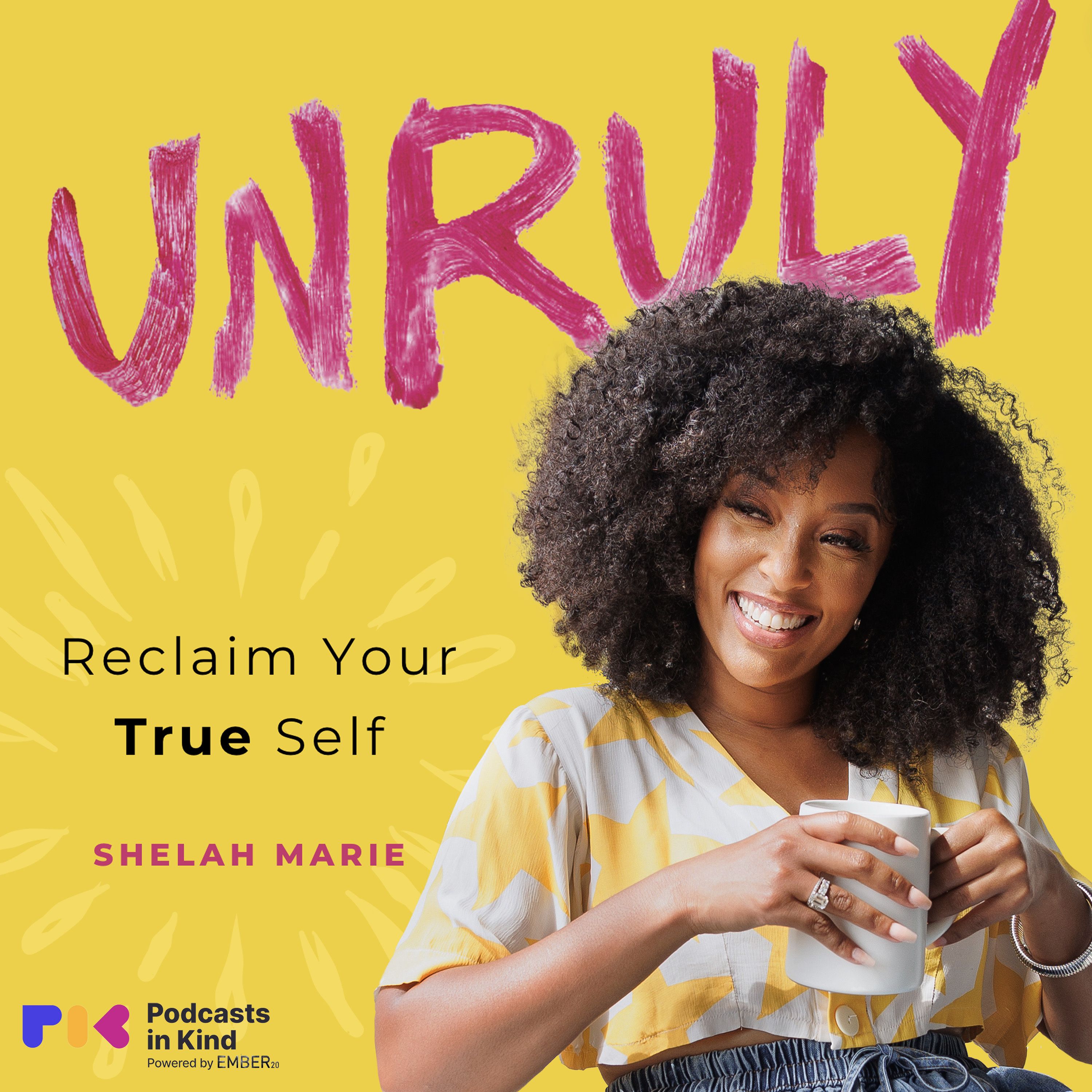
UNRULY WITH SHELAH MARIE
UNRULY WITH SHELAH MARIE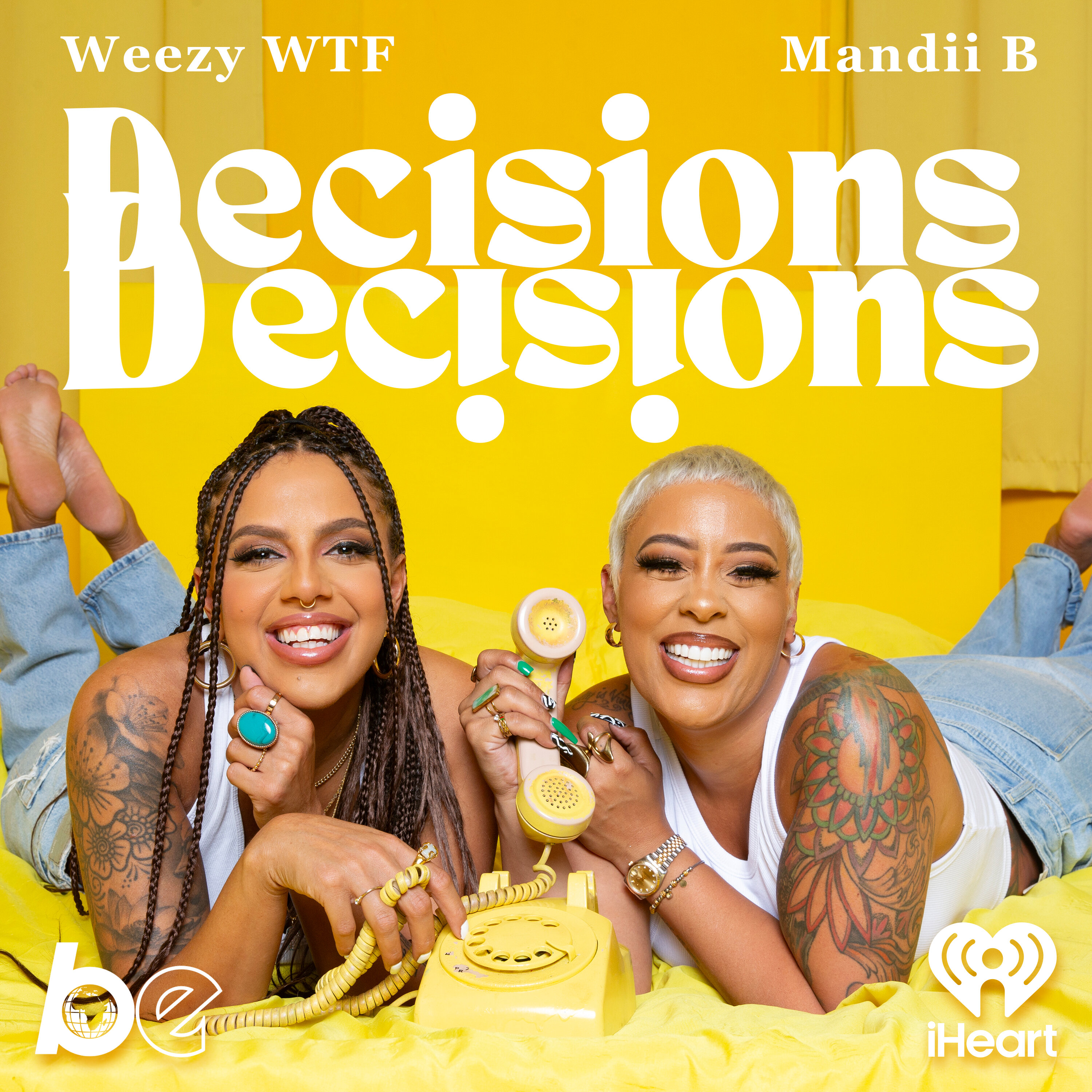
Decisions, Decisions
The Black Effect Podcast Network and iHeartPodcasts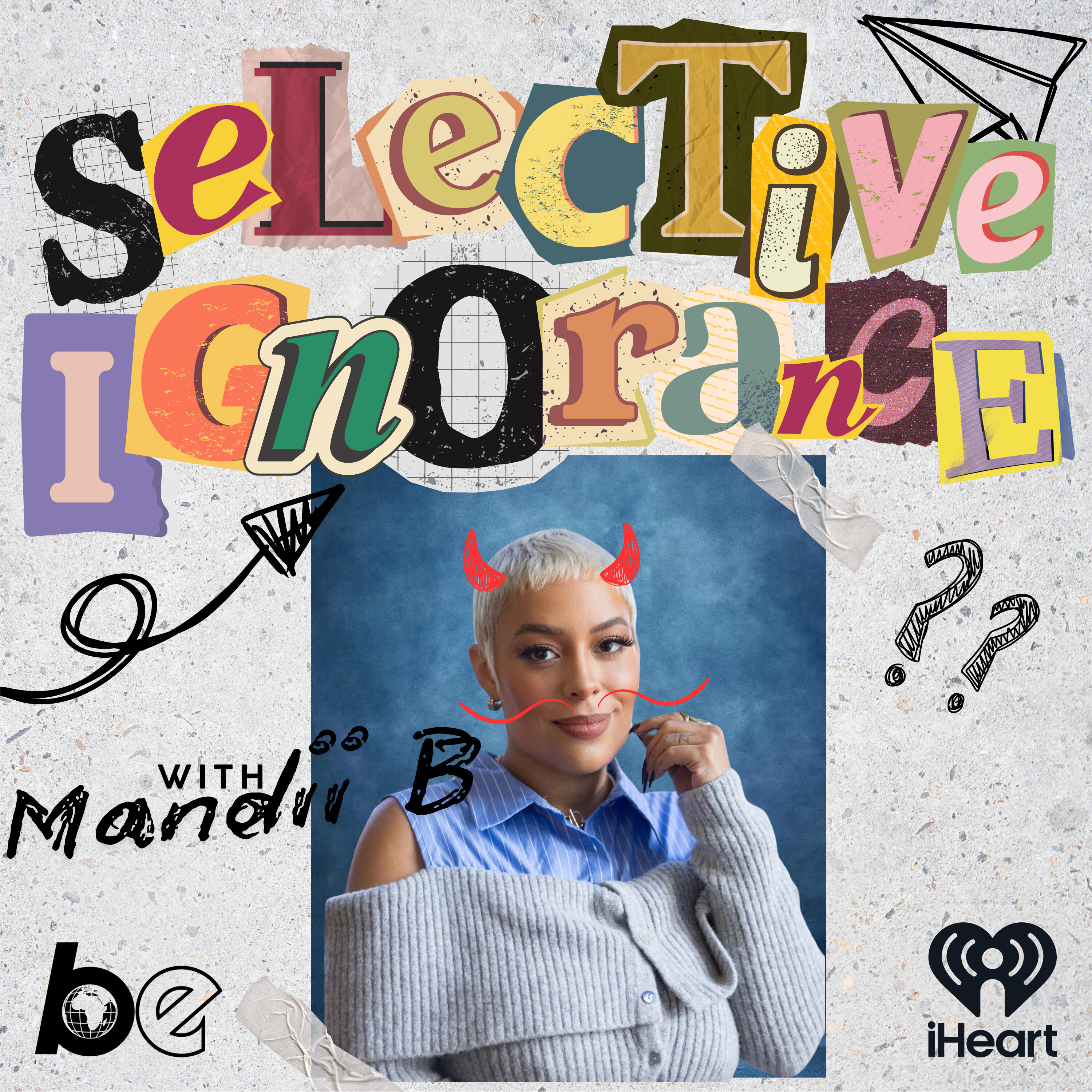
Selective Ignorance with Mandii B
The Black Effect Podcast Network and iHeartPodcasts
The Slumflower Hour
Chidera Eggerue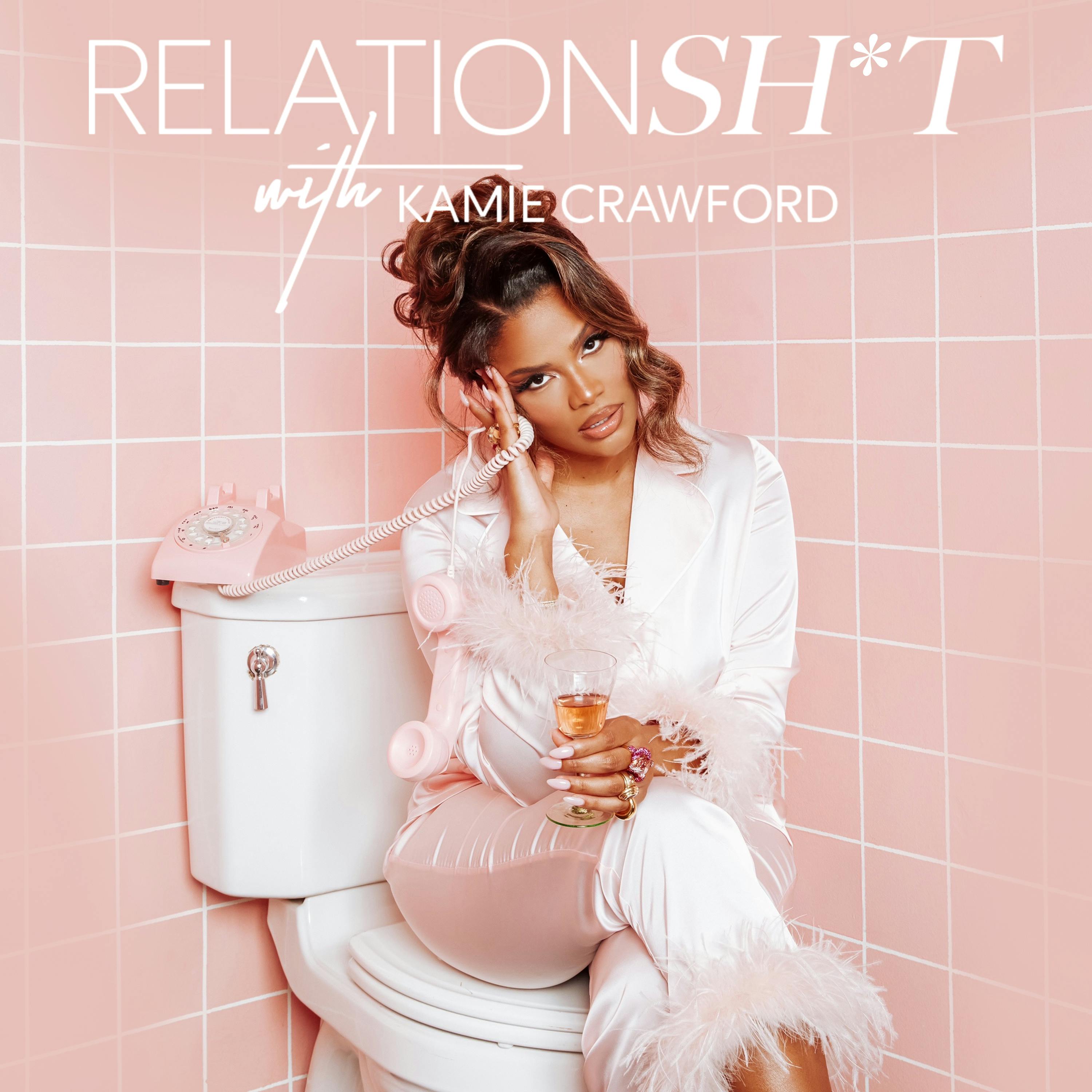
Relationsh*t with Kamie Crawford
Kamie Crawford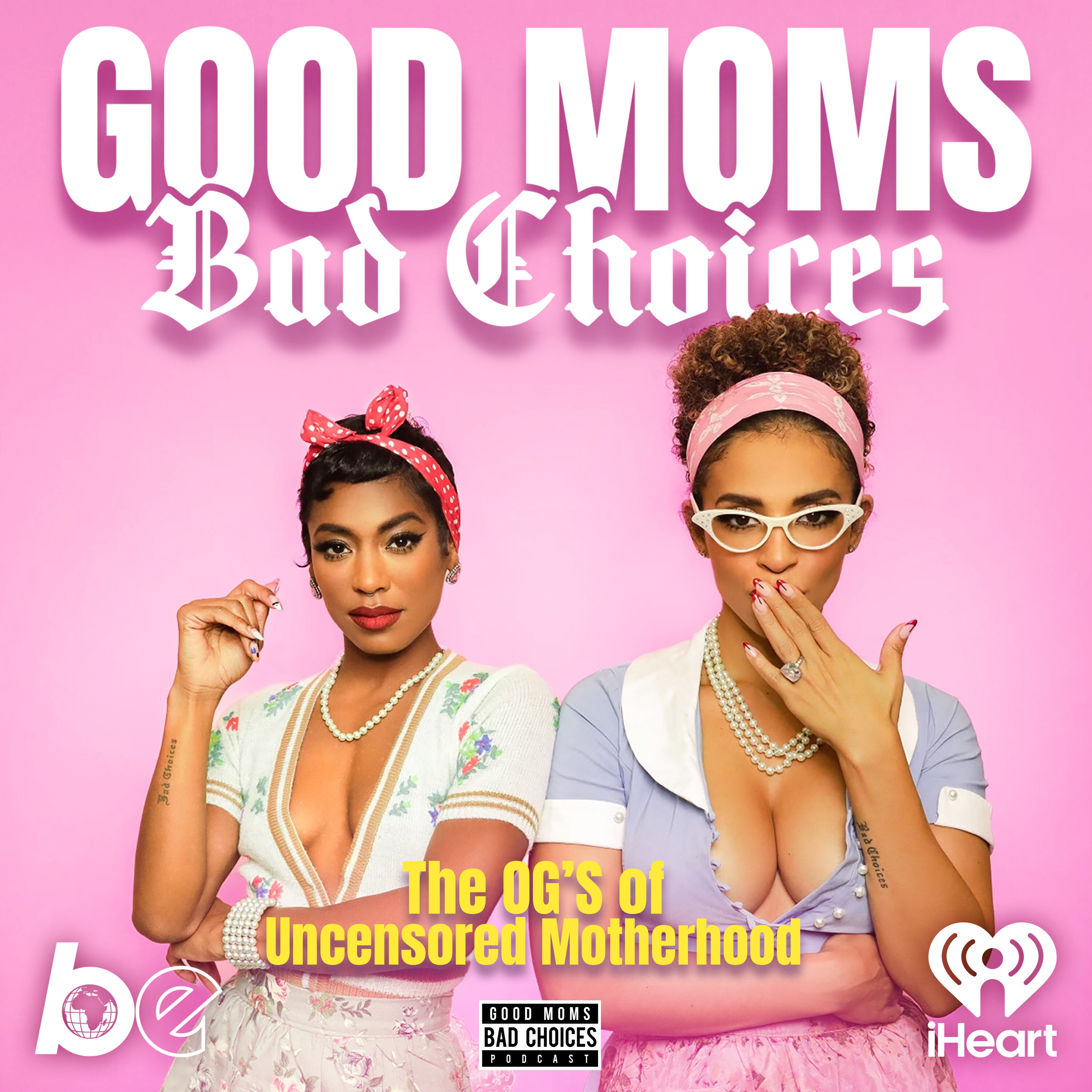
Good Moms Bad Choices
The Black Effect Podcast Network and iHeartPodcasts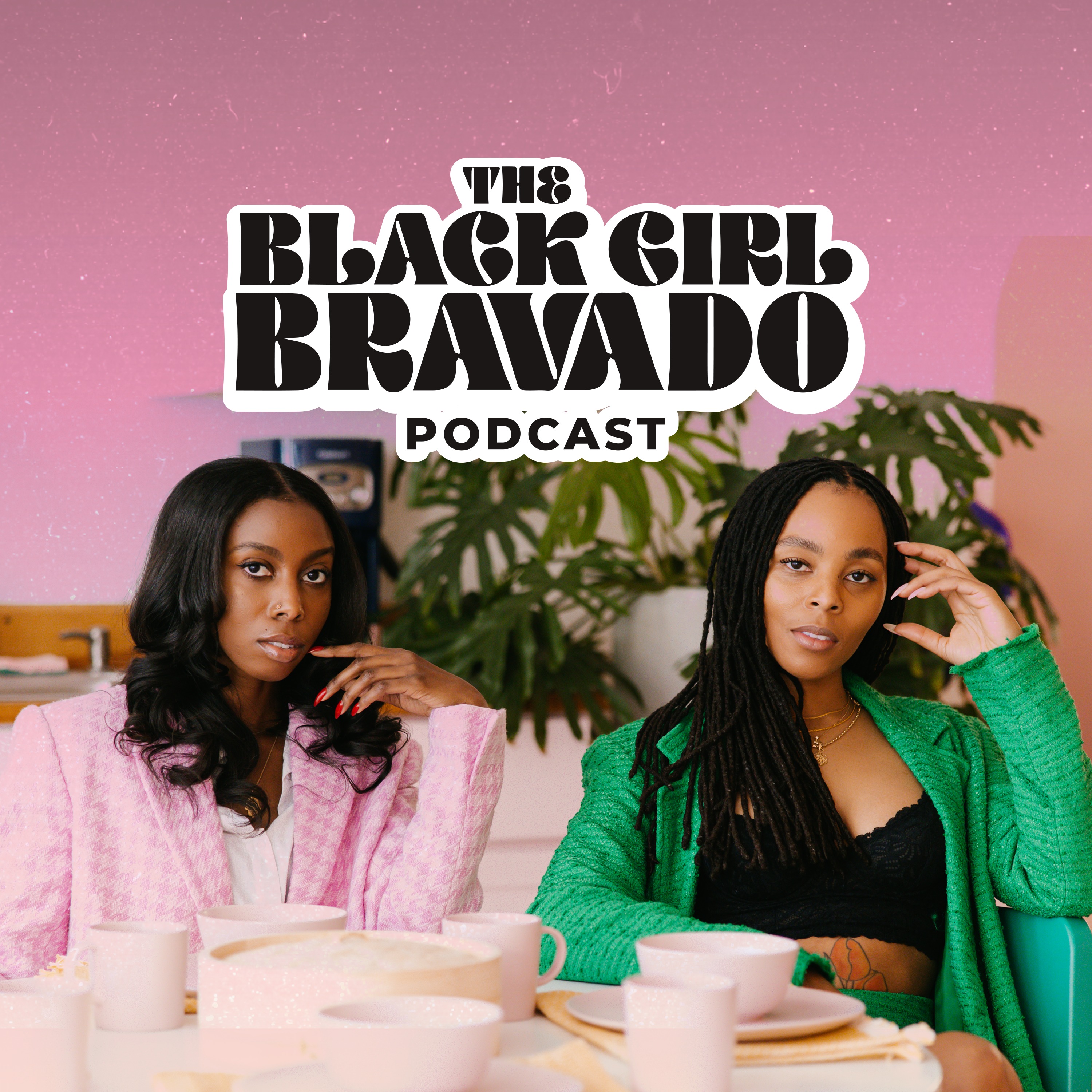
The Black Girl Bravado
Black Girl Bravado
Slay Girl Slay
Ashley Leggs
She's So Lucky
She's So Lucky
SpeakEZ Black Renaissance Podcast
Qadry Harris, M. Div.
Bobo's Void
Bobo, Donavon and MangoUpstream
Upstream
Caribbean Mystics
SpectreVision Radio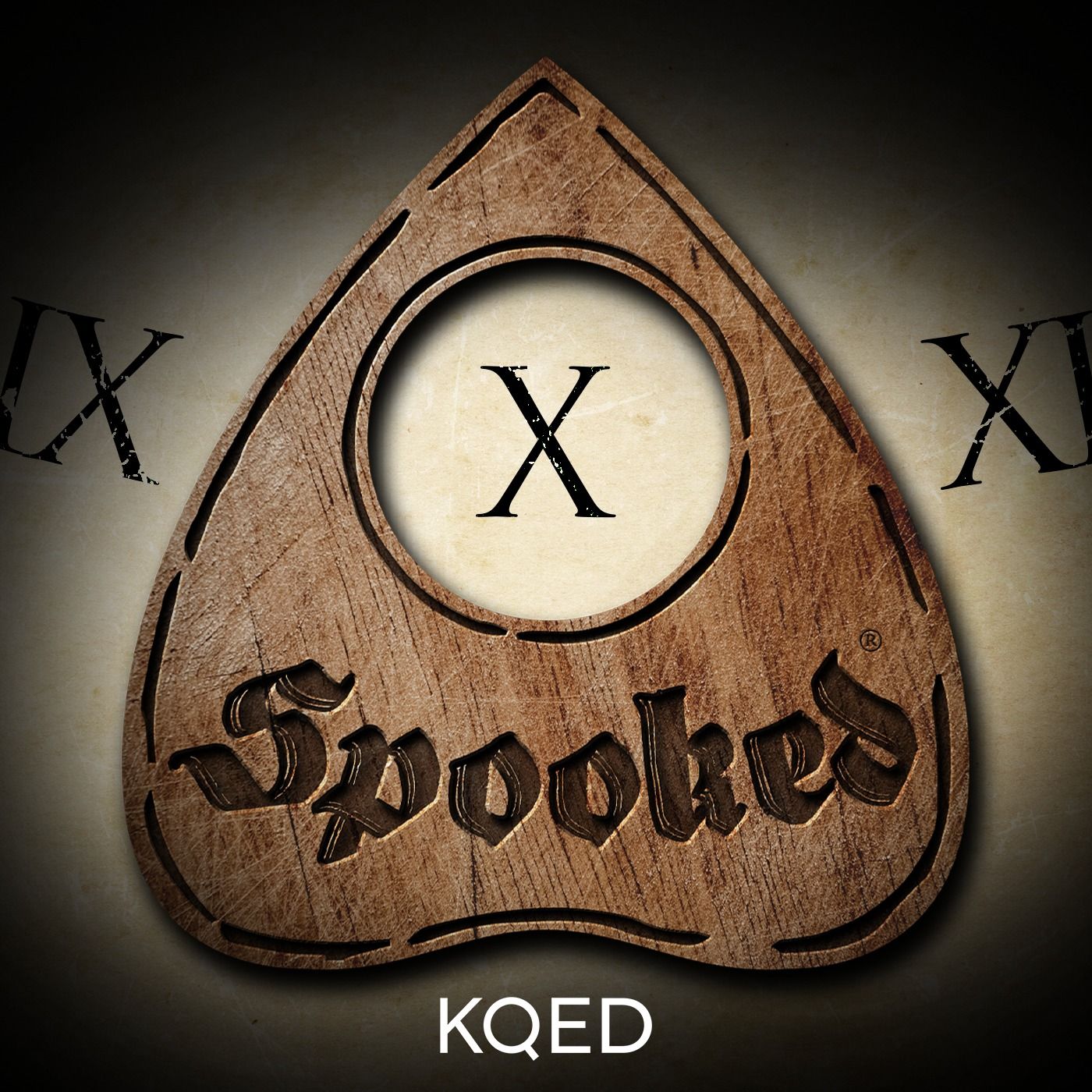
Spooked
KQED and Snap Studios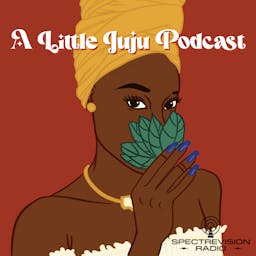
A Little Juju Podcast
SpectreVision Radio
Magic in the United States
Magic in the United States
Sensual Faith Podcast with Lyvonne Briggs
Lyvonne Briggs
Our Ancestors Were Messy
Nichole Hill
CultureCon Uncut
Spotify Studios
Hold For Maintenance
Hold For Maintenance
